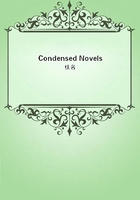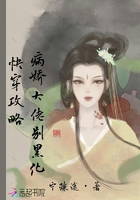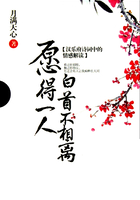The regularity that conduces to the concept of an object is, in fact, the indispensable condition (conditio sine qua non) of grasping the object as a single representation and giving to the manifold its determinate form.This determination is an end in respect of knowledge; and in this connection it is invariably coupled with delight (such as attends the accomplishment of any, even problematical, purpose).Here, however, we have merely the value set upon the solution that satisfies the problem, and not a free and indeterminately final entertainment of the mental powers with what is called beautiful.In the latter case, understanding is at the service of imagination, in the former, this relation is reversed.
With a thing that owes its possibility to a purpose, a building, or even an animal, its regularity, which consists in symmetry, must express the unity of the intuition accompanying the concept of its end, and belongs with it to cognition.But where all that is intended is the maintenance of a free play of the powers of representation (subject, however, to the condition that there is to be nothing for understanding to take exception to), in ornamental gardens, in the decoration of rooms, in all kinds of furniture that shows good taste, etc., regularity in the shape of constraint is to be avoided as far as possible.Thus English taste in gardens, and fantastic taste in furniture, push the freedom of imagination to the verge of what is grotesque the idea being that in this divorce from all constraint of rules the precise instance is being afforded where taste can exhibit its perfection in projects of the imagination to the fullest extent.
All stiff regularity (such as borders on mathematical regularity) is inherently repugnant to taste, in that the contemplation of it affords us no lasting entertainment.Indeed, where it has neither cognition nor some definite practical end expressly in view, we get heartily tired of it.On the other hand, anything that gives the imagination scope for unstudied and final play is always fresh to us.We do not grow to hate the very sight of it.Marsden, in his description of Sumatra, observes that the free beauties of nature so surround the beholder on all sides that they cease to have much attraction for him.
On the other band he found a pepper garden full of charm, on coming across it in mid-forest with its rows of parallel stakes on which the plant twines itself.From all this he infers that wild, and in its appearance quite irregular beauty, is only pleasing as a change to one whose eyes have become surfeited with regular beauty.But he need only have made the experiment of passing one day in his pepper garden to realize that once the regularity has enabled the understanding to put itself in accord with the order that is the constant requirement, instead of the object diverting him any longer, it imposes an irksome constraint upon the imagination: whereas nature subject to no constraint of artificial rules, and lavish, as it there is, in its luxuriant variety can supply constant food for his taste.Even a bird's song, which we can reduce to no musical rule, seems to have more freedom in it, and thus to be richer for taste, than the human voice singing in accordance with all the rules that the art of music prescribes; for we grow tired much sooner of frequent and lengthy repetitions of the latter.Yet here most likely our sympathy with the mirth of a dear little creature is confused with the beauty of its song, for if exactly imitated by man (as has been sometimes done with the notes of the nightingale) it would strike our ear as wholly destitute of taste.
Further, beautiful objects have to be distinguished from beautiful views of objects (where the distance often prevents a clear perception).In the latter case, taste appears to fasten, not so much on what the imagination grasps in this field, as on the incentive it receives to indulge in poetic fiction, i.e., in the peculiar fancies with which the mind entertains itself as it is being continually stirred by the variety that strikes the eye.It is just as when we watch the changing shapes of the fire or of a rippling brook: neither of which are things of beauty, but they convey a charm to the imagination, because they sustain its free play.















